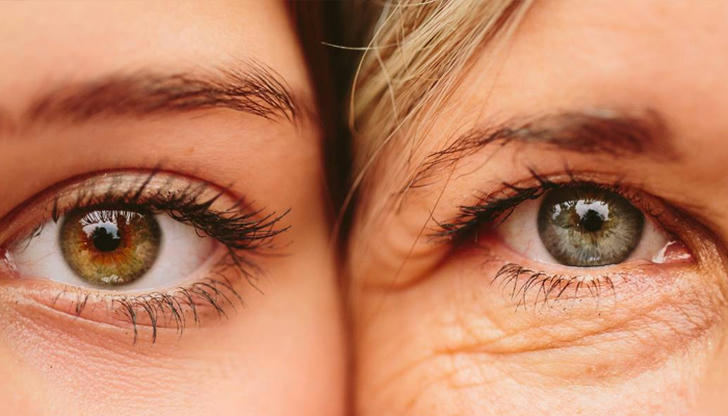8 Terrifying Facts About Staying Up Late

Do you ever find yourself burning the midnight oil, pushing your body to stay awake long past its natural rhythm? While it may seem like a badge of productivity or a necessity in our fast-paced world, the truth is far more chilling. In the shadows of sleep deprivation lurk 8 terrifying facts, waiting to haunt those who dare to defy their body's need for rest. Brace yourselves, as we delve into the dark reality of staying up late, where each fact is more alarming than the last, revealing the harrowing consequences of neglecting sleep.
1. Impaired Cognitive Function:

Staying up late disrupts essential brain functions, leading to impaired cognitive performance. Research shows that sleep-deprived individuals struggle with memory retention, decision-making, and problem-solving. Imagine trying to navigate through a foggy haze, where even simple tasks become daunting challenges.

2. Increased Risk of Chronic Diseases:
The toll of sleep deprivation extends beyond immediate fatigue. Studies link chronic sleeplessness to a higher risk of developing serious health conditions such as heart disease, diabetes, and obesity. The body's natural rhythms, including hormone regulation and immune system function, are disrupted, paving the way for long-term health issues.

3. Mental Health Decline:
Lack of sleep takes a heavy toll on mental well-being. It's not just about feeling cranky or irritable; prolonged sleep deprivation is associated with increased anxiety, depression, and mood swings. The mind becomes a battleground, struggling to cope with emotional stability amidst the chaos of sleeplessness.

4. Weakened Immune System:
Sleep deprivation compromises the body's ability to fight off infections and illnesses. The immune system operates optimally during restorative sleep, producing immune cells and antibodies crucial for warding off pathogens. Without sufficient sleep, the immune response weakens, making you more susceptible to colds, flu, and other infections.

5. Accelerated Aging:
Sleep plays a vital role in cellular repair and regeneration. Chronic sleep deprivation accelerates the aging process, leading to premature aging signs like fine lines, wrinkles, and dull skin. Moreover, lack of sleep interferes with the body's production of growth hormones, which are essential for maintaining youthful vitality and overall health.

6. Increased Accident Risk:
Fatigue from staying up late significantly increases the risk of accidents, both on the road and in the workplace. Sleep-deprived individuals experience slower reaction times, impaired judgment, and decreased alertness, making them more prone to accidents and errors. This heightened risk extends to activities like driving, operating machinery, and performing critical tasks.

7. Impaired Physical Performance:
Athletes and active individuals are particularly vulnerable to the effects of sleep deprivation. Lack of sleep hinders physical performance by reducing stamina, coordination, and muscle recovery. It also impairs exercise tolerance and can lead to decreased motivation for physical activity, contributing to a cycle of inactivity and declining fitness levels.

8. Weight Gain and Metabolic Disorders:
Lack of sleep disrupts the balance of hormones responsible for appetite regulation and metabolism. It leads to increased hunger, cravings for unhealthy foods, and a higher risk of weight gain and obesity. Moreover, chronic sleep deprivation is associated with insulin resistance, diabetes, and other metabolic disorders, posing serious risks to long-term health.
How much sleep does a person need?
The answer varies depending on age, lifestyle, and individual needs. Generally, adults require 7 to 9 hours of quality sleep each night to function optimally. However, this can vary based on factors like stress levels, physical activity, and overall health.
For teenagers, the recommended sleep duration is 8 to 10 hours per night. Adequate sleep is crucial during adolescence as it supports growth, development, and academic performance. Children need even more sleep, with toddlers requiring about 10 to 14 hours, while infants may sleep up to 16 hours a day.
It's important to prioritize sleep and establish healthy sleep habits to ensure adequate rest. Consistency in sleep schedules, creating a relaxing bedtime routine, and optimizing sleep environment can contribute to better sleep quality and overall well-being.
Some Sleep hygiene tips include:
Maintain a consistent sleep schedule by going to bed and waking up at the same time every day, even on weekends.
Create a relaxing bedtime routine, such as taking a warm bath, reading a book, or practicing deep breathing exercises.
Ensure your sleep environment is conducive to rest, with a comfortable mattress and pillows, and a cool, dark, and quiet room.
Limit screen time before bed, as the blue light emitted from electronic devices can disrupt sleep. Try to avoid screens at least an hour before bedtime.
Avoid caffeine, nicotine, and heavy meals close to bedtime, as these can interfere with sleep.
Engage in regular physical activity during the day, but avoid intense exercise close to bedtime.
Manage stress and anxiety through relaxation techniques like meditation, yoga, or journaling.
Limit naps during the day, especially in the late afternoon or evening, to avoid disrupting nighttime sleep.
